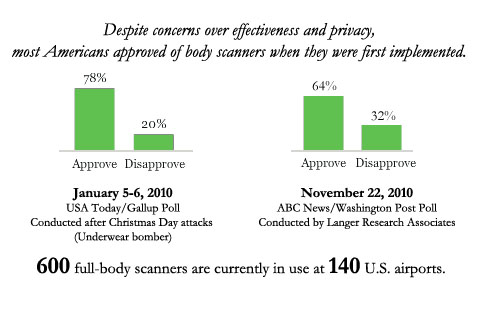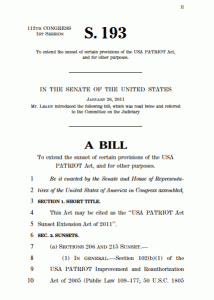
Attorney General Eric Holder announced last week that U.S. citizens are not exempt from being targeted by the government. (Office of the Attorney General)
WASHINGTON – The U.S. government has the right to kill terrorists overseas if they pose an imminent threat and can’t be captured – even if they are American citizens, Attorney General Eric Holder said last week in a major address in Chicago.
Leading civil liberties groups say the administration should involve courts in setting standards for when it is legal to kill terrorists before decisions are made to use lethal force, but other legal scholars assert that providing due process, especially to U.S. citizens, does not necessarily mean providing a judicial process.
Holder’s assertion was the Obama administration’s most weighty justification for armed drone strikes against a terrorist target, specifically a “senior operational leader of al-Qaida or associated forces.” Though Holder didn’t mention anyone by name, the statement comes just months after the government targeted Anwar al-Awlaki, a senior al-Qaida operative in Yemen and an American citizen. Al-Awlaki, who was born in New Mexico, was killed in an unmanned drone strike in September.
“It’s clear that United States citizenship alone does not make such individuals immune from being targeted,” Holder said in a speech at the Northwestern University School of Law. “But it does mean that the government must take into account all relevant constitutional considerations with respect to United States citizens – even those who are leading efforts to kill innocent Americans.”
Holder’s speech is a welcome step toward transparency, said Nathan Wessler, the national security fellow with the American Civil Liberties Union’s National Security Project. But, he added, it’s nowhere near sufficient in opening up the targeted killing program to public scrutiny.
“When we’re talking about killing U.S. citizens, there’s no chance to make it better after they’re dead,” Wessler said. “So it’s very important that courts are involved to help set the standards under which the government can use lethal force, and to evaluate whether they’ve observed the constitution after they carry out a strike.”
Targeted killings are constitutional, Holder said, because they afford targets the due process mandated in the Fifth Amendment, which says that the government may not deprive a citizen of his or her life without due process of law.
Holder argued that the “thorough and careful review” that the government engages in to determine whether a U.S. citizen is a lawful target amounts to due process. He made a distinction between due process and “judicial process,” maintaining that “where national security operations are at stake, due process takes into account the realities of combat.”
Examples of due process without judicial involvement can be found throughout U.S. law, said Charles Stimson, a senior legal fellow at the conservative Heritage Foundation. If the military wants to discharge a soldier, for instance, judge advocate generals, the military justice system’s judiciary, have to review the facts in the case. Though the soldier isn’t tried through the court system, Stimson said the offender has been afforded due process that is “fully consistent with” the constitution.
The Geneva Conventions stipulate that targeted killings are only legal in the context of “armed conflict.” Because the U.S. is engaged in armed conflict with terrorists, Holder said, the government’s targeted killing program complies with international law.
Holder acknowledged that the war the U.S. is waging on terrorists isn’t a conventional one with a set battlefield. Al-Qaida operates out of Afghanistan, he said, but the U.S. can’t afford to limit its self-defense to that battlefield. Holder alluded to al-Alwaki’s Yemeni group, noting that “al-Qaida and its associates have directed several attacks – fortunately, unsuccessful – against us from countries other than Afghanistan.”
“We are at war with a stateless enemy, prone to shifting operations from country to country,” he said. “Our government has both a responsibility and a right to protect this nation and its people from such threats.”
As a lawyer in the Israel Defense Forces, Amos Guiora sat at the table during counterterrorism discussions, helping make decisions in targeted killing cases. Now a law professor at the University of Utah, Guiora said Holder should have done a better job of defining exactly what constitutes a legitimate target. Without a “criteria-based approach” to targeted killing, he said, the government could apply the policy far too broadly.
“We need to have narrow, as in precise, articulations of these definitions in order to ensure that we’re not engaging in, for lack of a better term, overkill,” Guiora said. “And if you have loosey-goosey standards devoid of strictness, then what you ultimately have is a policy of obtuseness which lends itself to abuse.”
Wessler also worries that, devoid of public debate and judicial scrutiny, targeting American citizens will give the government too much power.
“The administration is asking the public just to trust it when it comes to protecting the rights of U.S. citizens who are targeted with lethal force,” Wessler said. “But that can’t be enough.”
Because terrorists who can be lawfully targeted pose an “imminent threat” to national security, Holder said capture can be a “time-sensitive” issue.
“It is preferable to capture suspected terrorists where feasible — among other reasons, so that we can gather valuable intelligence from them — but we must also recognize that there are instances where our government has the clear authority — and, I would argue, the responsibility — to defend the United States through the appropriate and lawful use of lethal force,” Holder said.
The legal authority to capture and detain is the same legal authority to target and kill, Stimson said. Once the government determines a terrorist is a lawful target, it’s up to the president to make a policy decision: capture or kill.
“This administration, because detention has proven, at least in their minds, to be difficult, has chosen to kill rather than capture,” Stimson said. “They prefer justice from 30,000 feet instead of capturing them, lawfully detaining them, lawfully taking them to Guantanamo, giving them an attorney and giving them access to our federal courts through habeas. And that’s a policy decision.”
It’s a decision, Stimson said, that the next administration can easily reverse – or enhance. With an ever-evolving terrorist threat, Holder is adamant that the power to target U.S. citizens is indispensable.
“This is an indicator of our times – not a departure from our laws and our values,” Holder said. “For this administration – and for this nation – our values are clear.”







